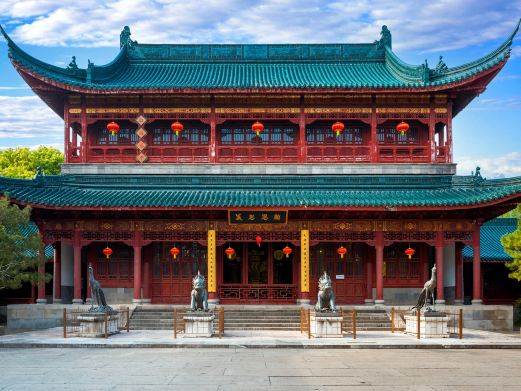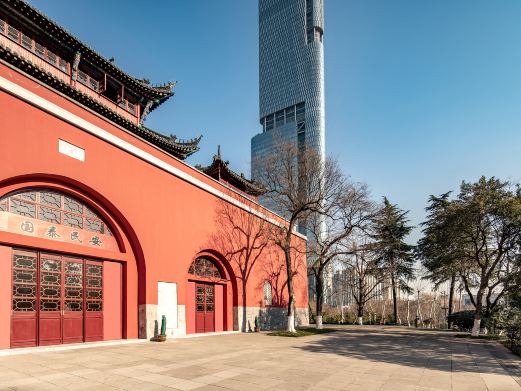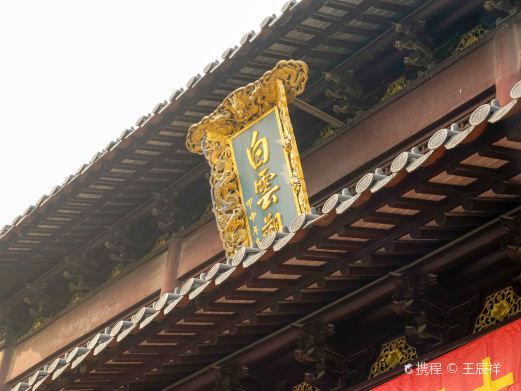The Weiwu Shrine (formerly known as the Cao Cao Memorial Hall) is located in Cao Cao Park. Centered around Cao Cao, a great statesman, strategist, and litterateur in the Three Kingdoms period, and taking his legendary life full of twists and turns as the main thread, it is a thematic commemorative site highlighting the historical culture of the Three Kingdoms. The memorial hall is a group of three-entry Han-style architectural complexes.
Currently, the exhibits include a brief introduction to Cao Cao’s life, the Weiwu Shrine, the corridor of poetry steles of the Three Caos, wax figures of Cao Cao and other exhibits. It was completed in 2009 with a total construction area of 2,200 square meters, reflecting Cao Cao’s great achievements in politics, military affairs, and literature. Cao Cao, courtesy name Mengde, infant name Aman, was of Han nationality and from Qiao County, Peiguo (now Bozhou, Anhui Province). He was a famous strategist, statesman, and poet in the late Eastern Han Dynasty in China. He was the founder of the State of Wei in the Three Kingdoms era and later became King of Wei. After his son Cao Pi ascended the throne, he was posthumously honored as Emperor Wu of Wei. Throughout his life, Cao Cao fought in battles. To achieve national reunification as soon as possible, he widely developed military farms in the north and built water conservancy projects, which had a certain role in restoring agricultural production at that time. Secondly, he employed people based on their abilities, breaking the concept of family status and suppressing powerful families. As a result, the social and economic development of the regions under his rule was restored and developed. In addition, he was also proficient in military tactics and wrote books such as Brief Explanations of Sun Tzu’s Art of War, Essentials of Military Books, and New Book of Mengde. As a generation of heroic figure, he was proficient in music and good at writing poems to express his political aspirations and reflect the hardships of people’s lives in the late Han Dynasty, full of pathos and grandeur.Opening hours: From November 1st to May 1st, 09:00 – 17:30.

Preferential policies: Children: Children under 6 years old (inclusive) or under 1.2 meters in height (inclusive) must be accompanied by an adult and are free of charge. Disabled people: Free with valid certificates. Military personnel: Active-duty soldiers, revolutionary disabled soldiers, and retired cadres of the military (with valid certificates). Journalists: Free with valid certificates. Specific groups: Provincial and ministerial-level and above model workers and heroes (with personal valid certificates).









